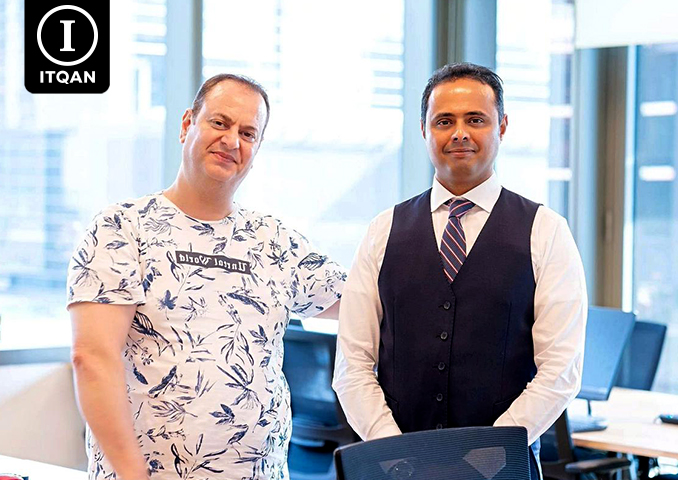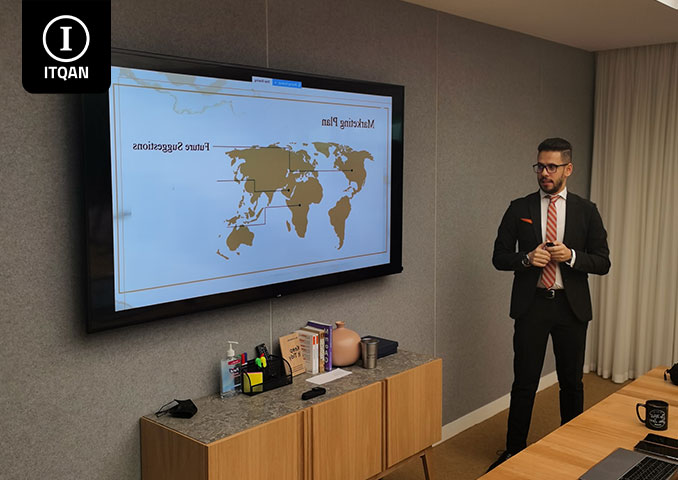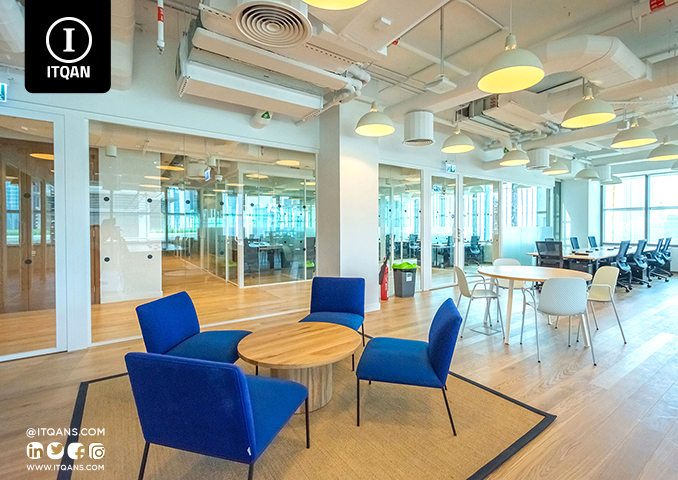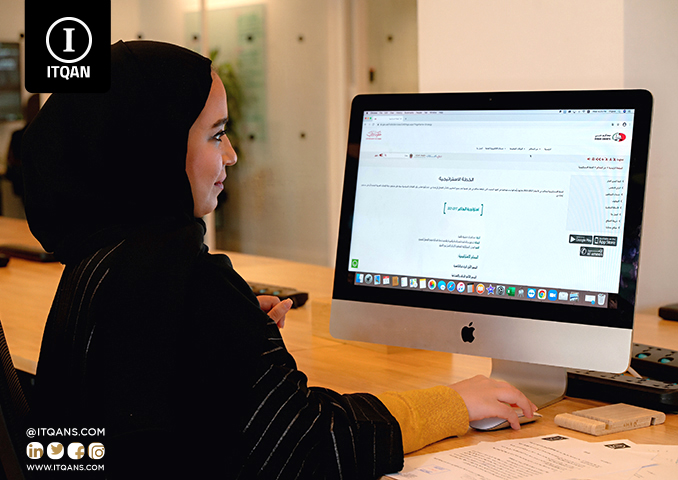Establishing a company in the Fujairah Free Zone represents a strategic step that provides distinct business and investment opportunities in the Emirate of Fujairah, which we will discuss in this introduction.
In the growing business world in the UAE, Fujairah Free Zones are home to many startups and major companies alike, thanks to their government encouragement and advanced infrastructure. These areas offer a competitive investment environment, as companies are exempt from income taxes for a long period, which attracts investors to take advantage of the available economic opportunities.
Establishing a company in the Fujairah Free Zone requires adherence to precise establishment steps, starting with choosing the appropriate type of company and legal registration, to obtaining the necessary licenses to practice commercial activities. Fujairah is considered a strategic location thanks to its excellent geographical location, which allows companies to access new markets easily and effectively.
Another attractive aspect is the government support provided by Fujairah Free Zones, including integrated logistics services and professional business management, making it easier for companies to launch and grow quickly and sustainably in this competitive market.
In short, establishing a company in a free zone in Fujairah is a promising strategic option for entrepreneurs and investors seeking to explore growth and expansion opportunities in the growing UAE business market.

Establishing a company in the Fujairah Free Zone
جدول المحتوى
ToggleBasic steps to establish a company in a free zone
Establishing a company in a free zone is a fruitful option for investors who seek to benefit from the available economic opportunities without heavy tax obligations and with flexibility in management. The free zones offer advanced infrastructure and logistical facilities that make them an ideal environment for business, attracting startups, medium and large companies alike. The basic steps for establishing a company in a free zone include:
- Choosing a company type: You must choose the appropriate company type for your business, such as a limited liability company (LLC), sole proprietorship, or joint stock company.
- Choosing a free zone: Free zones differ in terms of the services and facilities provided, so you must choose the zone that suits your business activity and its requirements.
- Determine the commercial activity: You must determine the type and scope of your commercial activities permitted within the free zone.
- Company registration: Submit a company registration application to the competent authorities in the free zone, and submit the required documents such as the names of shareholders, commercial activity, and company type.
- Obtaining licenses and permits: Obtain the necessary licenses to operate your business, and ensure compliance with all local and international regulations.
- Open a bank account: Open a bank account for the company to manage financial transactions and cash flows.
- Residence visa: If you need a residence visa, you may need to obtain a residence visa on the basis of establishment, such as investors or managers in the company.
These steps represent the basic framework for establishing a successful company in a free zone, taking into account local and international laws and legislation.
Types of companies in the Fujairah Free Zone
Here is a table showing the types of companies available in the Fujairah Free Zone:
| Type of Company | the description |
|---|---|
| Limited Liability Company (FZ-LLC) | A company with a separate legal personality, the number of shareholders can range from 1 to 50, and the liability of shareholders is limited to the extent of their shares in the capital. |
| Single Shareholder LLC | A company owned by one person has limited liability to the extent of his capital investment. |
| Branch | A branch of an existing local or foreign company, which carries out the same activity as the parent company and is subject to the laws and regulations of the Fujairah Free Zone. |
| Representative Office | A unit affiliated with a foreign or local company, which does not carry out commercial business but rather aims to enhance and promote the activity of the parent company. |
| Free Zone Establishment – FZE | A company owned by one person, enjoys the advantages of a free zone such as tax exemption and full foreign ownership. |
| Free Zone Company – FZC | A company owned by a number of shareholders, enjoying the advantages of a free zone such as tax exemption and full foreign ownership. |
The Fujairah Free Zone offers various options for establishing companies, providing flexibility for investors and entrepreneurs to choose the most appropriate type for their business activity and ensuring compliance with local laws.
Key benefits of establishing a company in a free zone
Establishing a company in a free zone represents an attractive strategic option for investors looking for a favorable business environment that provides many economic opportunities and benefits. Free zones are characterized by providing advanced infrastructure, distinct logistical facilities, and flexible tax policies and legislation, which makes them ideal for establishing and operating businesses with high efficiency and low cost. The main benefits of establishing a company in a free zone include:
- Tax exemptions: Free zones provide income tax exemptions for specific periods of time, which helps companies achieve higher profits and reduce operational costs.
- Facilitated customs policies: Free zones provide customs facilities that include import and export without customs duties or trade restrictions, which helps speed up shipping operations and reduce logistical costs.
- Facilitated business policies: Free zones provide easy business policies that include quick procedures for establishment, flexibility in operation, and ease in managing the company, which makes it easier for entrepreneurs to implement their ideas effectively and without major bureaucratic complications.
- Easy access to global markets: Free zones represent a strategic starting point for accessing regional and global markets, as they attract international companies and facilitate their access to new customers and strategic partners across borders.
- Advanced infrastructure: The free zones are characterized by an advanced infrastructure that includes modern logistical facilities, rapid communications, and integrated public services, which supports companies in carrying out their operations with high efficiency and effectiveness.
In short, establishing a company in a free zone is a favorable strategic option that gives companies the opportunity to benefit from a developed business environment and an encouraging investment climate that helps them achieve success and sustainable growth in the competitive global market.

Differences between a company in the free zone and a company on the mainland
Differences between a company in the free zone and a company on the mainland
Free zone companies and mainland companies are options available to investors to set up their businesses, and both options differ in terms of laws and legislation, available business opportunities, and tax costs. We will now discuss the main differences between them:
Taxes:
- Free Zone: Provides income tax exemptions for a specific period, or applies taxes at a low rate.
- Mainland: Businesses here are subject to regular local income taxes, as well as other taxes such as value-added tax.
rules and regulations:
- Free Zone: It has flexible laws that facilitate establishment and operation procedures, and provides great flexibility in managing companies.
- Mainland: Typically requires compliance with more stringent labor, employment, and tax laws.
Logistics and customs facilities:
- Free zone: It provides easy customs facilities, such as not imposing customs duties on import and export within the zone, which facilitates shipping operations.
- Mainland: Regular customs laws must be complied with, with additional costs and procedures when exporting and importing.
Access to international markets:
- Free Zone: It is a strategic starting point for accessing regional and global markets due to ease of export and advanced logistics.
- Mainland: Typically requires more complex and expensive export and import processes.
Infrastructure and public services:
- Free Zone: It has advanced infrastructure, such as rapid communications and logistical facilities, which supports companies in achieving higher efficiency.
- Mainland: Infrastructure may be less developed, and is subject to challenges in accessing integrated public services.
In short, free zone and mainland businesses differ in many legal, tax and logistical aspects, making each option suitable for specific types of business and different corporate needs.
Our company’s role in establishing a company in the Fujairah Free Zone
Establishing a company in the Fujairah Free Zone represents a strategic investment that provides investors with distinct opportunities for growth and prosperity in the Emirate of Fujairah. The following is a conclusion that summarizes the benefits and possibilities available in this context.
By choosing to establish your company in a free zone in Fujairah, you benefit from an encouraging investment environment characterized by tax exemptions and appropriate policies that contribute to strengthening the company’s position in the market. The Fujairah Free Zone provides modern infrastructure and integrated logistics services, which supports companies’ operations efficiently and facilitates expansion into local and international markets.
The full government support and legal facilities provided by free zones help simplify operational procedures and provide the necessary support for companies to achieve their business goals with high efficiency. Thanks to its strategic location, Fujairah provides opportunities to reach new markets and to cooperate with strategic partners at the regional and global levels, which strengthens the company’s position in the market and contributes to its sustainable growth.
In conclusion, establishing a company in a free zone in Fujairah represents a fruitful option that opens new horizons for investment and expansion to investors, supported by advanced infrastructure and strong government support, which makes this step a wise strategic step in today’s business world.
Frequently asked questions about establishing a company in the Fujairah Free Zone
What is a free zone?
A free zone is a special trade zone within a particular country that provides economic benefits such as tax exemptions, customs facilities, and facilitating labor laws to attract investments.
What are the basic steps to establish a company in a free zone?
The basic steps include choosing the type of company, determining the appropriate location within the free zone, registering the company and obtaining the necessary licenses, opening a bank account, and complying with local laws and regulations.
What are the differences between a company in the free zone and a company on the mainland?
A company in a free zone enjoys tax exemptions for a certain period and provides greater flexibility in financial and tax laws, while a company on the mainland is subject to applicable taxes and legal regulations.
What are the main benefits of establishing a company in a free zone?
Key benefits include tax exemptions, facilitated customs policies, simplified bureaucratic procedures, and easy access to international markets.
Can a company in the free zone benefit from the local market?
Yes, companies in the free zone can benefit from the local market, including selling goods and services to local consumers and businesses, but they also benefit from free access to global markets.
What are the expected costs of establishing a company in the free zone?
Costs vary based on the type of company and free zone, and include registration fees, licensing costs, and real estate rents, in addition to legal and administrative consulting costs.

















